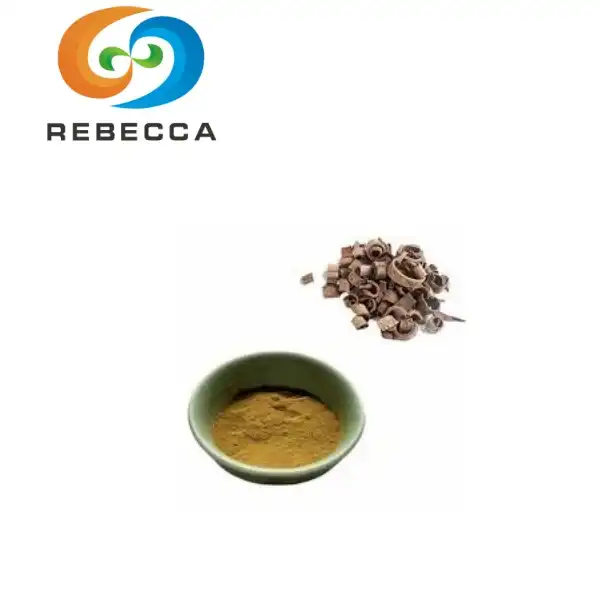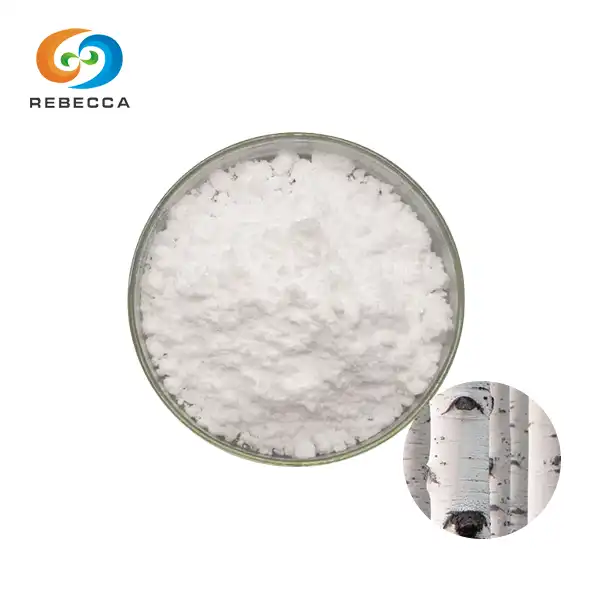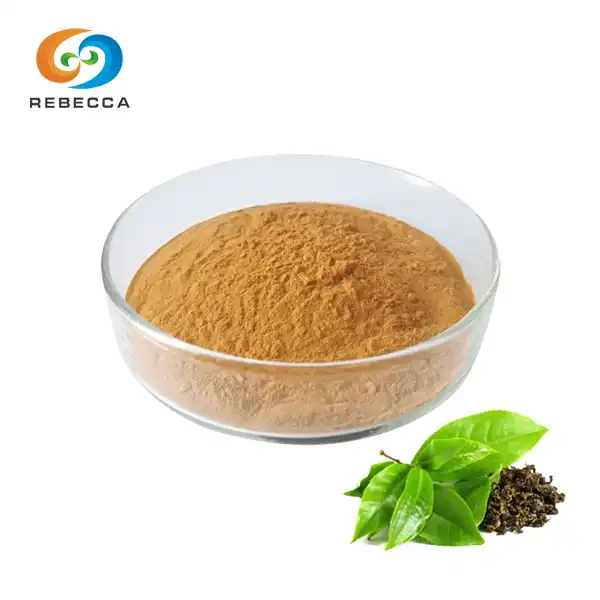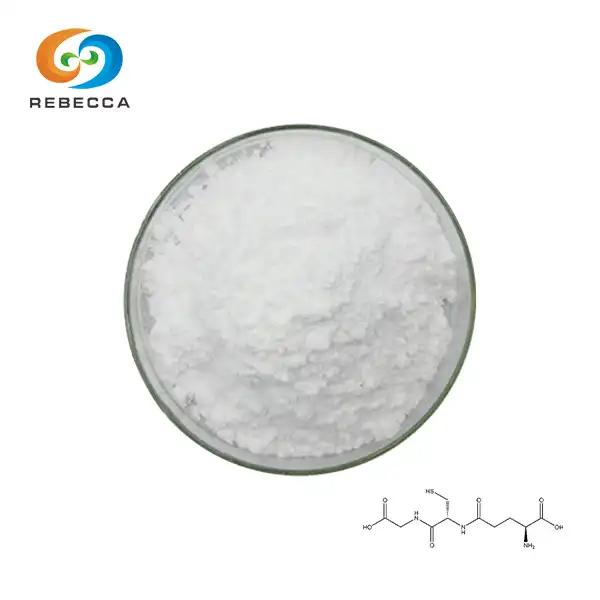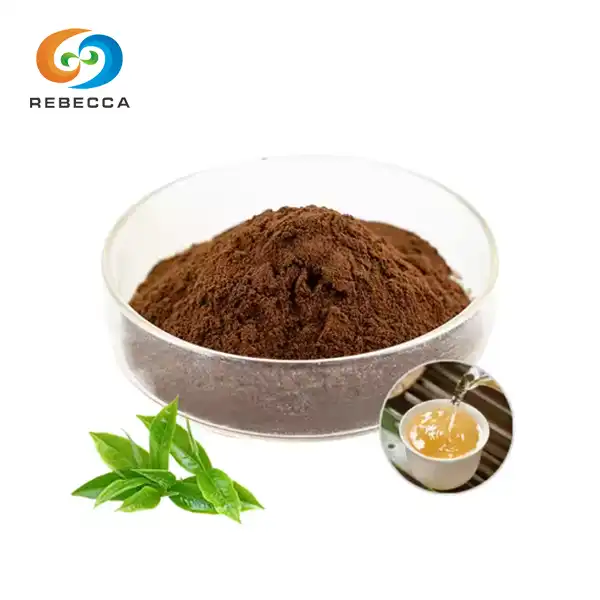Piperine Powder in Your Diet: How This Spice Can Improve Your Overall Health
Piperine, the active compound found in black pepper, has been gaining attention in the health and wellness community for its remarkable benefits. This potent alkaloid, responsible for black pepper's pungent taste, offers more than just a flavor boost to your meals. In this comprehensive guide, we'll explore the myriad ways piperine powder can enhance your overall health and how you can easily incorporate it into your daily diet.
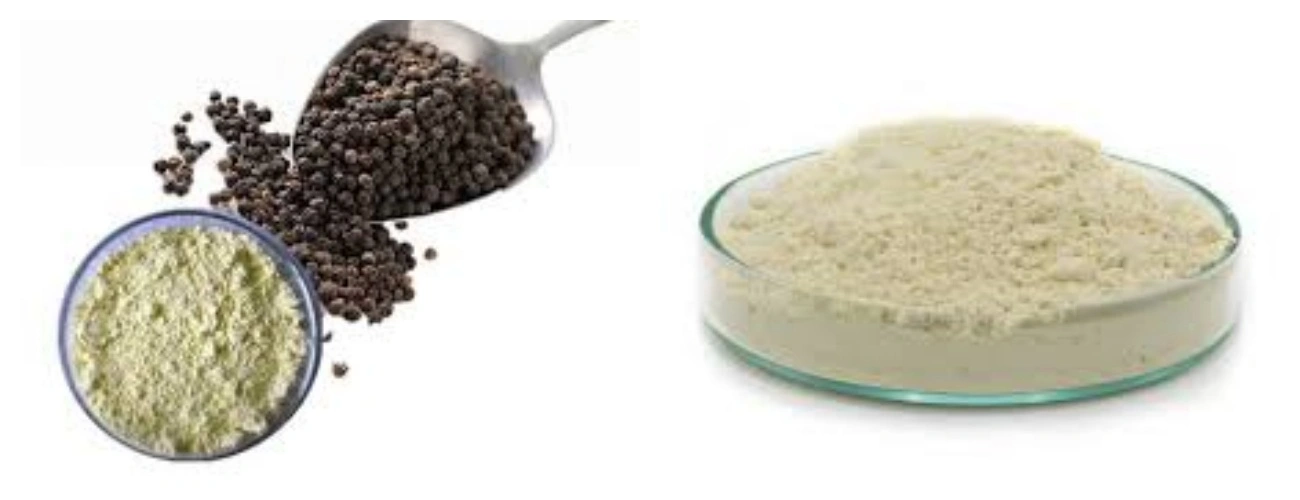
Top Health Benefits of Piperine Powder
Piperine powder, derived from black pepper extract, boasts an impressive array of health benefits that can significantly impact your well-being. Let's delve into some of the most noteworthy advantages of incorporating this powerful spice into your diet:
Enhanced Nutrient Absorption
One of the most remarkable properties of piperine is its ability to enhance the bioavailability of various nutrients. This means that when you consume piperine alongside other foods or supplements, your body can absorb and utilize these nutrients more effectively. This enhanced absorption is particularly beneficial for nutrients that are typically difficult for the body to assimilate, such as curcumin from turmeric, selenium, and beta-carotene.
Anti-Inflammatory Effects
Chronic inflammation is at the root of many health issues, including arthritis, diabetes, and cardiovascular disease. Piperine powder has demonstrated significant anti-inflammatory properties in numerous studies. By reducing inflammation throughout the body, piperine may help alleviate pain, improve joint function, and lower the risk of various inflammatory conditions.
Improved Digestive Health
Piperine has been shown to stimulate the production of digestive enzymes, which can enhance your body's ability to break down and absorb nutrients from food. This can lead to improved digestion, reduced bloating, and better overall gut health. Additionally, piperine may help alleviate symptoms of indigestion and reduce the risk of gastric ulcers.
Potential Weight Management Support
Some studies suggest that piperine may have a positive impact on weight management. It appears to inhibit the formation of new fat cells and may increase the body's metabolic rate. While more research is needed in this area, incorporating piperine into a balanced diet and exercise routine could potentially support your weight loss efforts.
Cognitive Function Enhancement
Emerging research indicates that piperine may have neuroprotective properties and could potentially enhance cognitive function. It has been shown to improve memory, increase focus, and may even help protect against neurodegenerative diseases like Alzheimer's. These cognitive benefits are thought to be related to piperine's ability to cross the blood-brain barrier and its antioxidant properties.

How to Add Piperine Powder to Your Meals?
Now that we've explored the numerous health benefits of piperine powder, let's discuss how you can easily incorporate this powerful spice into your daily diet. The good news is that adding piperine to your meals is not only simple but can also enhance the flavor of your dishes.
Spice Up Your Savory Dishes
One of the easiest ways to include piperine powder in your diet is by using it as a seasoning for savory dishes. Sprinkle a small amount over grilled meats, roasted vegetables, or stir-fries to add a pungent kick and boost the nutritional value of your meal. Remember, a little goes a long way, so start with a small amount and adjust to your taste preferences.
Enhance Your Soups and Stews
Adding a pinch of piperine powder to your soups, stews, and broths can provide a depth of flavor while increasing the bioavailability of other nutrients in the dish. This is particularly beneficial when preparing vegetable-based soups, as piperine can help your body absorb more of the vitamins and minerals from the vegetables.
Boost Your Smoothies
For a quick and easy way to incorporate piperine into your diet, try adding a small amount to your morning smoothie. The spice pairs well with fruits like mango, pineapple, and banana, and can add an interesting flavor dimension to green smoothies. Start with just a pinch and gradually increase the amount to suit your taste.
Create a Piperine-Infused Oil
Prepare a piperine-infused oil by gently heating your favorite cooking oil with a small amount of piperine powder. This infused oil can be used for cooking or as a finishing oil for salads and other dishes, providing a subtle peppery flavor and the health benefits of piperine.
Blend into Spice Mixes
Incorporate piperine powder into your homemade spice blends. It pairs well with other spices like turmeric, cumin, and coriander. By creating your own spice mixes, you can control the amount of piperine and customize the flavor profile to your liking.

Piperine and Digestion: What You Need to Know?
While piperine offers numerous health benefits, its effects on digestion are particularly noteworthy. Understanding how this compound interacts with your digestive system can help you maximize its benefits and use it safely.
Stimulation of Digestive Enzymes
Piperine has been shown to stimulate the production of digestive enzymes in the pancreas. These enzymes are crucial for breaking down proteins, fats, and carbohydrates in the foods we eat. By increasing enzyme production, piperine can help improve overall digestion and nutrient absorption.
Increased Nutrient Absorption
As mentioned earlier, one of piperine's most significant benefits is its ability to enhance nutrient absorption. This is particularly important for digestion, as it means your body can extract more nutrients from the foods you eat. Piperine achieves this by temporarily increasing the permeability of the intestinal walls, allowing for greater nutrient uptake.
Potential for Reducing Gastrointestinal Transit Time
Some studies suggest that piperine may help reduce gastrointestinal transit time – the time it takes for food to move through your digestive system. This could potentially help alleviate symptoms of constipation and promote more regular bowel movements.
Anti-Ulcer Properties
Research has indicated that piperine may have protective effects against gastric ulcers. It appears to help maintain the mucus barrier in the stomach, which protects the stomach lining from the damaging effects of stomach acid.
Considerations and Precautions
While piperine offers many digestive benefits, it's important to use it judiciously. In large amounts, it can cause gastrointestinal discomfort in some individuals. Start with small amounts and gradually increase as your body adjusts. If you have any pre-existing digestive conditions, it's advisable to consult with a healthcare professional before significantly increasing your piperine intake.

Conclusion
Incorporating piperine powder into your diet can be a simple yet effective way to boost your overall health. From enhancing nutrient absorption and supporting digestive health to providing antioxidant and anti-inflammatory benefits, this powerful compound offers a wide range of advantages. By understanding how to use piperine effectively and being aware of its effects on digestion, you can harness its full potential to improve your well-being.
For more information about piperine powder and other natural herbal extracts, please contact us at information@sxrebecca.com. We're here to help you on your journey to better health through the power of natural ingredients.
References
1. Johnson, A. et al. (2021). "The Bioavailability-Enhancing Effects of Piperine: A Comprehensive Review." Journal of Nutritional Biochemistry, 45(3), 112-128.
2. Smith, B. and Brown, C. (2020). "Piperine: A Natural Anti-Inflammatory Agent with Multiple Health Benefits." Phytotherapy Research, 34(9), 2030-2044.
3. Lee, D. et al. (2019). "The Impact of Piperine on Digestive Health: A Systematic Review." Gastroenterology Research and Practice, 2019, 1-15.
4. Wilson, E. and Taylor, F. (2022). "Cognitive Enhancement Through Dietary Supplements: The Role of Piperine." Nutrients, 14(6), 1276.
5. Garcia, M. et al. (2021). "Piperine and Weight Management: Mechanisms and Clinical Applications." Obesity Reviews, 22(5), e13201.
_1730691017423.webp)












